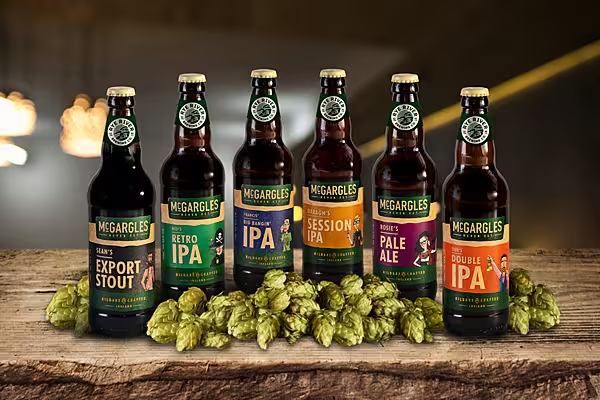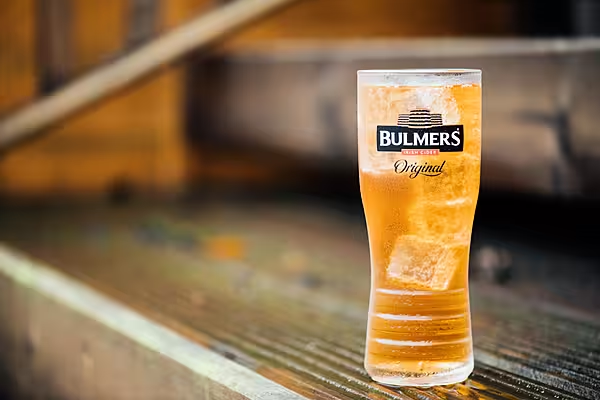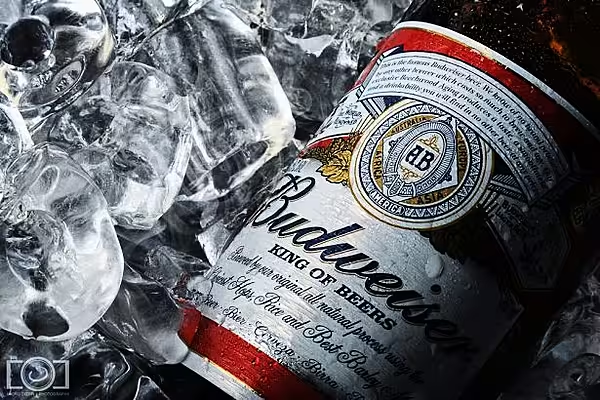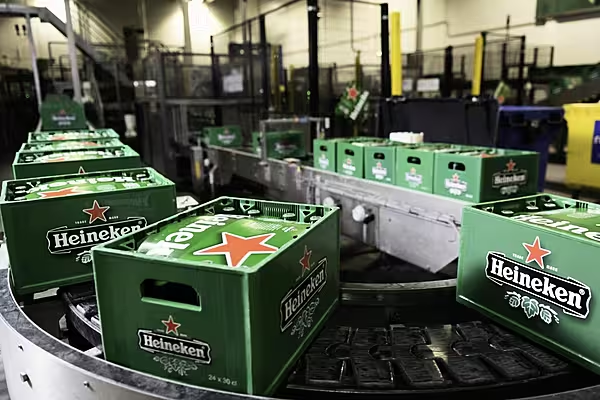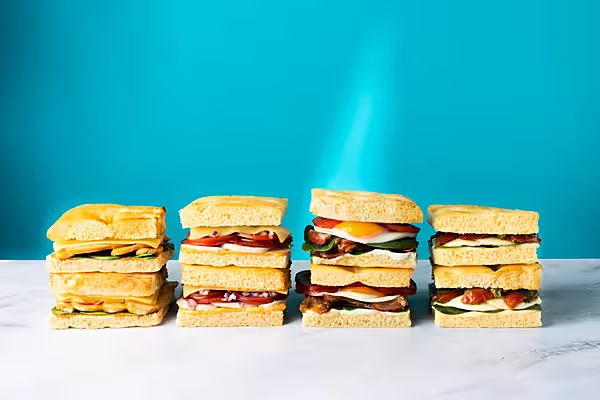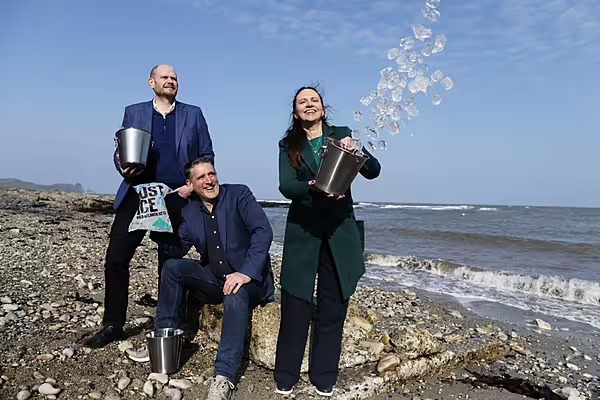Rye River Brewing Company boasts an exceptional record of achievement in the World Beer Awards and an internationally recognised BRC accreditation. Its CEO and founder Tom Cronin talks to Maev Martin about double digit growth in retail, future investment plans, and bringing a new brand to market this year.
At the start of 2020, Rye River Brewing Company had an ambitious plan to grow its export business and target the on-trade in Ireland, but were stopped in their tracks on 12 March when the first lockdown got underway.
It soon became apparent that there would be further lockdowns and that Rye River would have to endure a stop-start year that would put paid to its ambitious plan.
“Fortunately, we are very retail-oriented in Ireland and that has been our strategy since we restructured the business in 2017,” says Cronin. “From March 2020 onwards, we witnessed the consumer movement towards drinking less and drinking better.
People were savouring the food and drink occasions and our range of beers, and craft beer in general, works well in so many food and drink pairings.
All of this helped us to grow our retail sales by over 50% last year, a level of growth that compensated somewhat for the fall off in exports and in our on-trade business. We grew overall volume in our brewery by 11%.”
Rye River Brewing Company has 57 employees and that number will rise to 61 in April.
“Our business, which includes 60,000 square feet of warehousing, is located on a five-acre site in Celbridge, Co Kildare, so we could facilitate a lot of pod operations and we have kept Covid-19 out of the business to date,” he says.
While 2020 was a rewarding year in terms of growth and bringing a lot more consumers into the craft beer category, Cronin points out that the pandemic brought a lot of challenges and increased costs, from the requirement for social distance markings in the brewery, to sanitisation facilities, PPE and stock write offs.
However, during the pandemic, Rye River took a decision to support the independent retailer. “When the government asked us to step up and find roles that would retain employment, we reassigned staff who had been working in on-trade, export, and brewery tour roles,” he says.
“They started working to incentivise a lot of independent retailers, including convenience stores and independent off-licences, to take our brands on board. I know that e-commerce is an important and growing element of business for so many companies, but we have strong retail relationships, from independent off- licences to national listings, and that is how we sell our beers.”
European Exports
While Rye River didn’t realise its export ambitions for 2020, it was still a pretty successful year for them, as they are well established in a number of European markets. “Some of our brands and distributors managed to do well in the pandemic,” he says.
“For example, we have a listing in the Italian retail chain Esselunga and, as a result, the export plan for 2020 for Italy wasn’t as hard hit as other markets, such as Germany, where we were targeting more on-trade customers, so our level of success in any given market depended on the distributor strategy that was employed.”
The UK has never been a significant part of Rye River’s export strategy. “It is very difficult for ‘everyday craft beers’ to trade in the UK and most of our ranges – McGargles, Grafters, Solas, The Crafty Brewing Company – along with most craft beers in Ireland, are in that category. They find it hard to compete with ales on the price per litre and it is difficult for Irish craft brewers to make strong margins as a result.
“Also, because we have been growing in volume over the past few years, we are impacted on our duty threshold in the UK, so it is difficult for us to compete with other smaller Irish craft brewers in that market. Brewdog has changed the mindset of what craft beer is in the UK. It is a massive global entity and they have set the standard in terms of pricing in retail.”
However, there is nothing everyday about their Rye River Seasonal Range, which targets the more discerning craft consumer.
“With that type of premium beer we do small batches each year for the Irish market, and for select export markets, including the UK, when we have the volumes and opportunity to do so. We shipped that range to the UK over Christmas and it was very successful for us.”
Sourcing Ingredients
COVID-19 hasn’t negatively impacted Rye River’s brewery operation when it comes to sourcing the ingredients required in the brewing process. “We have strong supply chains and we forward purchase hops and malts, so we have a lot of security in our supply chain that smaller breweries mightn’t have,” he says.
“With Brexit, we had some challenges in the first few weeks of 2021, but they seem to be easing. We ironed out the initial nervousness around lead times and border checks that arose without affecting our manufacturing plant or our supply chain.
I’m not confident that we won’t have further delays as a result of Brexit as the year progresses, but we are experiencing a period of grace at the moment.
“Kieran Rumley of Love Irish Food was a huge support to our business in the months prior to Brexit and kept us informed about what was happening. We also set up a steering committee last May to prepare for Brexit as best we could. We didn’t invest in massive systems - we just watched what was happening on a weekly basis and we got supply guarantees from our major suppliers.”
A lot of Rye River’s malt comes from the UK as they use a type of malt in some of their beers that isn’t produced in Ireland.
They also source a lot of hand turned malts – a traditional method of malting – in Britain. “Many of our beers have some element of these hand turned malts and we have worked with a traditional maltster in the UK who has been supplying us for the past few years,” he says. “These are the types of initiatives that we believe give our beers an edge and allow us to win so many awards internationally.”
World Beer Awards
Rye River Brewing Company has garnered an impressive haul of awards in recent years, both in Ireland and internationally, that now totals 170. In 2019 and 2020 they were the most successful independent craft brewery at the World Beer Awards (WBAs). In 2020 alone, they won 30 awards at the WBAs.
“The World Beer Awards are the internationally recognised symbol of quality, so to have 30 beers universally acclaimed as best in class, best in country and best in world is quite an achievement,” says Cronin.
“Our export stout won the best in world award at the WBAs last year, which we regard as one of our most impressive accolades to date. There are only six or seven categories for the world’s best and we won the one relating to stout.
“Stout is a popular brew choice for many craft breweries around the world, as it allows for massive creativity, so for us to brew a high ABV export stout and have it recognised as best in the world is a nice nod to an Irish craft brewer.”
Five Successful Brands
According to Tom, Rye River Brewing Company brew in excess of 30 unique recipes. “There is no shared recipe across any of our brands, the only sharing is in terms of the brewing process,” he says. “We are a respected and trusted brewery with household brand names and our quality and consistency has resonated well with consumers. Our brand identities are strong and appeal to different consumers.
“McGargles has become a household name in terms of craft beer in Ireland and is a very strong performer for us, but all of our ranges are performing exceptionally well.
The Crafty Brewing Company range is quirky and confident, Solas is an innovative, entry level craft beer, Grafters is a no nonsense, hard- working beer, as its name suggests, so we are good at developing successful brands. Not many breweries have five successful brands in their own right.”
The Crafty Brewing Company is a Lidl exclusive, both internationally and in the domestic market, and Cronin says it has become one of the most successful Irish craft beer brands over the past few years.
“It has won seven WBAs and I’m unaware of any private label brand that has won that many WBA awards,” he says. “We also have other retailer exclusive brands. Tesco have Solas and Dunnes have Grafters and they have won WBAs, so the 30 awards that we won in 2020 are across all of our beer ranges.”
Future Investment And NPD
Cronin is excited about their new brand that will be rolled out in 2021, a development that is the culmination of the growth they experienced in 2020, their investment plans, and the ramping up of their brewing operation.
“We implemented a three-year plan following the restructuring of the business in 2017 and we came through that successfully, hitting all of the markers that we set, and we set out on a new five-year strategy in 2020,” he says.
“While the pandemic threw us a massive curveball, our volume growth of 11% shows that we are on track with the plan, and in the next four years we will be investing in new packaging lines and new tank farm additions, and we will have to invest in a new brewhouse at some stage.
“We brew 32 brews a week and, starting in April, we will move to a 24/7 operation at our existing brewhouse. We are launching a new brewery-led brand under the Rye River brand name in the second half of 2021. We believe that this will provide the next surge of growth for the business.
“We have developed a successful story in craft brewing without having any of our brands carry the Rye River name, so we decided to bring a brand to life that recognises who we are. Apart from the Rye River Seasonal range, which is small batch, this will be the first of our everyday beers to have the Rye River name.”
The company has been developing this brand for the past 18 months, working closely with Zuilmah Wallace in The Thinkhouse in Bord Bia, and with Cork-based Greenhouse, who carry out all of Rye River’s brand work.
“The new beer, which will launch domestically, will be heavily export orientated when markets open up, and I think our reputation for being really good brewers will stand to us, as we will introduce Rye River to new markets with this new brand,” he says.
What will also stand to them, no doubt, is their BRC standard. “We have achieved a high quality mark that proves we are a world class brewery, and I believe that we are the only independent brewery in Ireland with this accreditation.
It took 18 months of investment to ensure that we achieved it, but the BRC standard is a massive door opener when you enter the international retail market.”
Room For Improvement
He acknowledges that the Irish craft beer sector is a very competitive market, making it difficult to secure retail space. “However, competition and choice is really important for the consumer and we have seen growth in the independent craft beer category in Ireland over the past five or six years,” he says.
“In 2014, 1.4% of all beer in Ireland was craft beer. In 2020, with the popularity of craft beer being accelerated as a result of the pandemic and the ‘drink less, drink better’ movement, it is probably about 2.8% of the beer market in Ireland, which is a doubling of the market since we started out.
“And there is room in export markets for the many Irish craft breweries that offer great branding and consistency to do well.”
© 2021 Checkout – your source for the latest Irish retail news. Article by Maev Martin. Click sign up to subscribe to Checkout.
